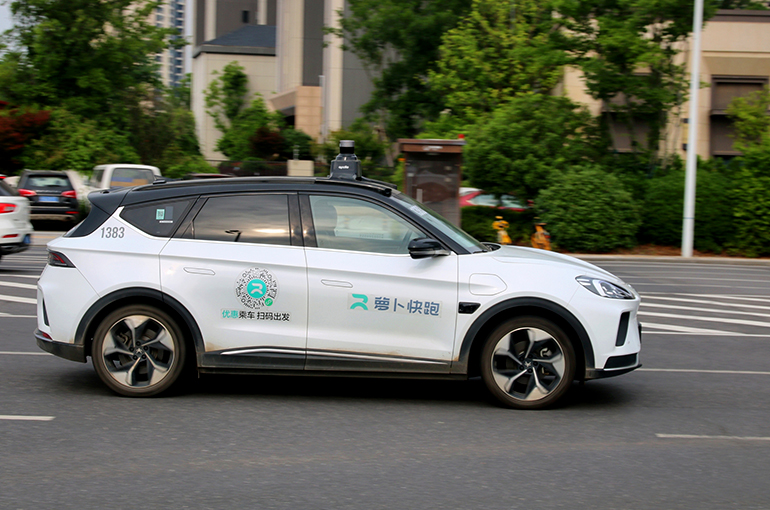 Baidu's Apollo Go to Start Robotaxi Road Tests in Abu Dhabi, Dubai
Baidu's Apollo Go to Start Robotaxi Road Tests in Abu Dhabi, Dubai(Yicai) March 31 -- Baidu said it has agreed to begin road testing its robotaxi service Apollo Go in designated areas in Abu Dhabi and Dubai, with plans to deploy a full fleet by next year in the former city and by 2028 in the latter.
Apollo Go has allied with Autogo, an Emirati autonomous mobility firm and unit of tech giant Kintsugi Holding, to deploy the largest robotaxi fleet in Abu Dhabi, the Beijing-based company announced on March 29. Initial test of dozens of autos will start in select areas, "with phased expansion planned ahead of full commercial operations by 2026," it added.
On March 28, Baidu said it inked a deal with the Roads and Transport Authority of Dubai to deploy 100 sixth-generation, purpose-built Apollo RT6 robotaxis for testing in urban areas by the end of this year, with plans to launch no less than 1,000 self-driving autos in the city by 2028.
The two agreements marked Apollo Go's first overseas deployment of robotaxis. Last November, the service received a license to start road testing 10 robotaxis in Hong Kong's northern Tung Chung New Town.
"We see strong synergy between our mission and Dubai's ambitious vision for autonomous transportation," said Wang Yunpeng, corporate vice president of Baidu and president of its Intelligent Driving Group. "It is a privilege to partner with the RTA and support its goal of making 25 percent of the city's transportation autonomous by 2030.
With Apollo Go's proven success in China and Baidu's cutting-edge expertise in AI and autonomous driving, we are excited to introduce safe, efficient, and sustainable autonomous mobility solutions to the region," Wang added.
Last month, Baidu's co-founder and Chief Executive Robin Li attended the World Governments Summit in Dubai and met with local leaders, saying that robotaxis are 10 times safer than human drivers. "If you look at our operational records, the insurance claims rate of Apollo Go is only one-fourteenth of that from regular taxis or a regular driver's car," he said.
Apollo Go robotaxi services have carried out around 10 million public rides.
Along with Baidu, many Chinese tech companies see Dubai as a testbed for international expansion. For example, food delivery giant Meituan picked the city as the first overseas market for its drone business, Keeta Drone.
Thanks to its favorable policies, diverse testing environments, strong market potential, and regional influence, Dubai has become a strategic hub for many businesses looking to expand into the Middle East, an investor who recently visited the city told Yicai.
Apollo Go still faces regulatory issues, user habits, localization, and other challenges in the Middle East, according to analysts. It must build local teams, understand regional market demands, and tailor its robotaxi services to local preferences, they added.
Apollo Go must also compete with Chinese rivals WeRide and Pony.ai in the Middle East. The two companies have already begun road testing and formed ties in the United Arab Emirates, Saudi Arabia, and others.
China's autonomous driving tech is poised for rapid global expansion as it matures and policy support increases, industry insiders pointed out. In addition to the Middle East, Apollo Go is also exploring Singapore, Europe, and other potential markets, they noted.
Editor: Martin Kadiev